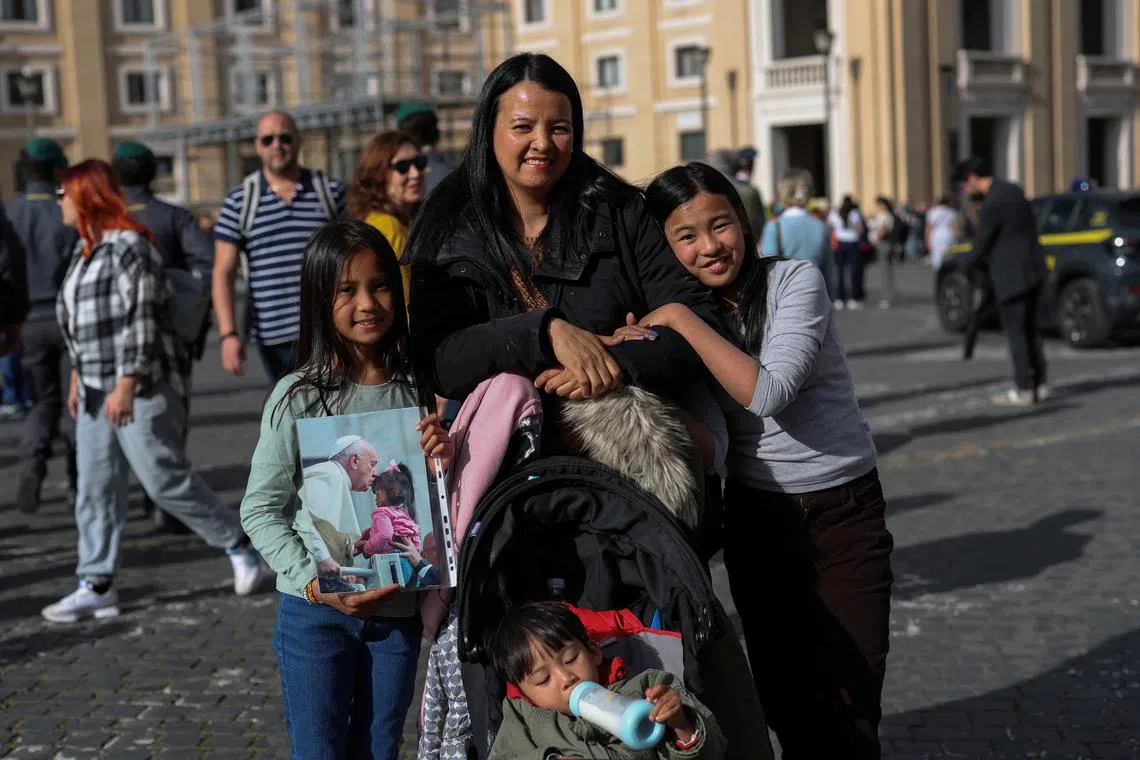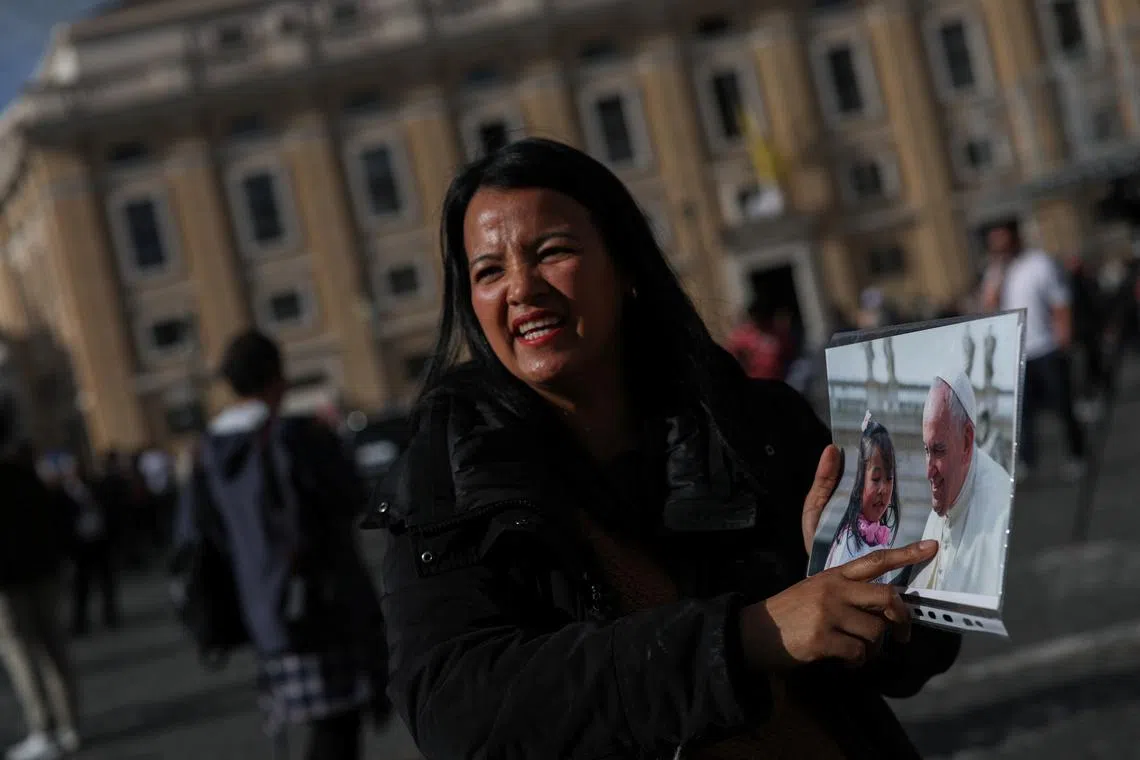‘We’re all the same people’: How Pope Francis touched a migrant’s heart
Sign up now: Get ST's newsletters delivered to your inbox

Ms Diane Karla Abano, a Filipino migrant in Rome, standin with her three children, who are between two and nine years old.
PHOTO: REUTERS
VATICAN CITY – Ms Diane Karla Abano, a Filipino migrant living in Rome, has vivid memories of the day that Pope Francis touched her heart and made her feel at home, kissing her two young daughters during an audience in St Peter’s Square in May 2018.
“The moment that I reached out to the Pope and saw his smile, I don’t know, all the hurt, all the pain that I felt, it changed into happiness and hope,” Ms Abano said, her voice breaking and tears welling in her eyes as she showed photos of the event.
“In the eyes of Pope Francis, we are not migrants; we’re all the same people”, not Filipino or Indian or Asian, said Ms Abano.
She was back in St Peter’s Square this week, queuing up with tens of thousands of other mourners to pay her last respects to a man whose brief blessing proved transformative.

Ms Diane Karla Abano holding a picture of her daughter Sophia and Pope Francis taken in 2018.
PHOTO: REUTERS
Pope Francis, himself the son of Italian immigrants in Argentina, placed the plight of migrants and refugees at the heart of his moral agenda during his 12-year papacy, personally intervening to help asylum seekers and pushing governments to do much more to help.
He repeatedly spoke out for the poor and marginalised, and criticised countries that shunned migrants.
His first trip outside Rome after he was elected pope in 2013 was to the tiny Italian island of Lampedusa to pay tribute to the thousands of people who had drowned in the Mediterranean while trying to reach Europe and a better life.
In 2016, he visited the Greek island of Lesbos and brought a dozen Syrian refugees back to Italy with him on his plane. In 2021, he flew to Cyprus and again ensured safe passage for a group of 50 asylum seekers. Among them was Ms Grace Enjei, who had escaped fighting in her native Cameroon in 2020 and had ended up stranded in the so-called “buffer zone” that divides the island as she sought to reach territory that falls within the European Union.
Just before the trip, Vatican officials told her that the Pope had learnt of the plight of those caught in a legal limbo, and had arranged for them to be relocated to Italy.
“We were so happy, like, we were singing the whole night, we were dancing, we were celebrating actually. Something so, so, so good, like it was real good. We were so happy,” said Ms Enjei.
Days after she arrived in Italy, Ms Enjei was unexpectedly invited to celebrate Pope Francis’ birthday.
“He was like, ‘These are the people from the buffer zone?’ and we were like, ‘Yes, yes, yes’. He said, ‘Oh, you guys are welcome. I heard about your story, and I was so touched, so I needed to do something’,” Ms Enjei said.
Bridges not walls
The late Pope repeatedly urged political leaders to defend migrants, saying their safety should take precedence over national security concerns.
In 2015, he became the first pope to address the US Congress, where he recalled his own migrant background and said it was natural for people to cross borders in search of better opportunities for them and their families.
“Is this not what we want for our own children?” he said. “I say this to you as the son of immigrants, knowing that so many of you are also descended from immigrants.”
In 2016, he publicly clashed with Mr Donald Trump – who was then campaigning for his first term in the White House – over his plans to build a wall between the United States and Mexico to keep out migrants.
“A person who thinks only about building walls, wherever they may be, and not building bridges, is not Christian,” Pope Francis told reporters. Mr Trump, who attended the Pope’s funeral on April 26, said at the time that it was “disgraceful” for a religious leader to question a person’s faith.
Pope Francis was critical again as the US President began his second term, telling American bishops in a letter in February that he disagreed with migrant deportations.
The Pope faced resistance not just from politicians, but also sometimes from within his own church with a number of parishes, especially in Eastern Europe, unhappy over his call for religious communities to take in refugees.
But speaking from her new home in Rome, Ms Enjei stressed the positive impact that Pope Francis had on so many people, not just herself.
“It’s not only about me. He has helped so many people, and we thank him for the fight he’s fighting for the migrants. We really appreciate and thank him so much,” she said. REUTERS


